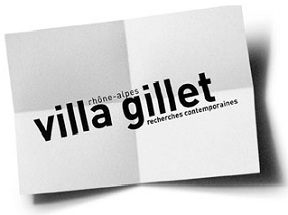Narration in the Human Mind
Issue d'une famille norvégienne, Siri Husdvedt est titulaire d'un doctorat de littérature anglaise de l'Université Columbia. Poétesse, essayiste et traductrice, son premier roman, Les Yeux bandés est traduit en français en 1992. Son troisième roman Tout ce que j'aimais connaît un succès international. En 2010, elle édite un essai La femme qui tremble, sur les troubles neurologiques qu'elle a étudiés dans les hopitaux psychiatriques. Siri Hustvedt vit à Brooklyn.
Human beings are forever explaining themselves to themselves. This is the nature of our self-consciousness. We are not only awake and aware of the world around us, but are able to reflect on ourselves as actors in that world. We reason and we tell stories. Unlike our mammalian relatives who do not narrate their own lives, we become characters in our own tales, both when we recollect ourselves in the past and imagine ourselves in the future. Our ability to represent our experience in language - in those sounds and signs of our essential intersubjectivity - allows us the necessary symbolic alienation required for mental time travel. Yesterday. Today. Next week. Because we are not bound to the here and now, to the phenomenal present, we can invent our own fictional worlds, inhabit the fictional spaces of others, and build myriad intellectual models intended to represent who we are and where we live.
The idea that memory and imagination are a single faculty dates back to Aristotle. Vico called the imagination "expanded or compounded memory." Freud referred to our revisions of past memories through our present circumstances as Nachträglichkeit - a form of after-ness. In his Outlines of Psychology (1896), Wilhelm Wundt wrote "It is possible to mistake images of imagination for real experiences" and contended that "our memory images change under the influence of our feelings and volition to images of imagination." Contemporary neuroscientists now refer to the reconsolidation of memory. We do not recall an original memory but rather the last time we remembered. Our conscious memories are fictionalized over time, even though we are not aware that we are reconfiguring or inventing our own pasts. In a paper soon to be published in the journal Neuropsychoanalysis, I argue that writing fiction and explicit, willed memory are inextricably linked: writing fiction is like remembering what never happened.
Lionel Naccache argues that the fictionalizing behavior of human beings is universal and rooted in unconscious processes that are in no way limited to automatic or homeostatic functions - regulation of heart rate, breathing, etc. - but include complex cognitive activities. This seems to me indisputable. The "new cognitive unconscious" delineated by Naccache differs from Sigmund Freud's dynamic unconscious. In fact, the contemporary computational model of mind used by many, not all, cognitive scientists more closely resembles pre-Freudian models of an "adaptive unconscious." In 1854, the English scientist William Benjamin Carpenter postulated what he called "unconscious cerebration." "The more clearly we examine... the Mechanisms of thought," he wrote, "the more clear does it become that not only an automatic, but an unconscious action enters largely into all its processes." He also argued that many of our prejudices are unconscious and that our awareness depends on attention - both ideas prevalent in contemporary cognitive science.
Lionel Naccache and I are both fascinated by a positive symptom that may, but does not necessarily, follow brain injury: confabulation. Todd Feinberg cites the example of one of his patients, JK, who, after surgery to drain a brain abscess in his right hemisphere, claimed that his paralyzed left arm belonged to his brother. He told the doctor that he had found the arm in a coffin and that it brought him comfort and made him feel stronger. The brain's right hemisphere is heavily implicated in both reading the affect of other people and regulating and inhibiting it from within. After JK's delusion remitted, Dr. Feinberg asked him how he felt about his good arm, to which the patient said, "okay." Then he explained, sobbing loudly, "This one [his right arm] doesn't have a story like this one [pointing to his paralyzed left hand], it has a story. Like the one I told you...this hand has a background that makes me feel closer to my brother." Michael Gazzaniga coined a memorable term: the "left-brain interpreter." In most people, crucial language areas are located in the left hemisphere. Although the right brain is by no means non-linguistic, left-brain interpretations are part of life. We spin stories because we need them. Most of us, however, if we are lesion-free and not dreaming, are inhibited by what Freud called "the reality principle": that can't be my brother's arm. Nevertheless, in JK's story, why is it his brother's arm and not the arm of someone else? Why the coffin? In other words, why this particular story and not another? Right hemisphere lesions may be associated with confabulations of this kind, but they do not explain their content.
Every theoretical model is vulnerable at its margins - the place one makes an incision between categories. It is instructive to remember that the Greeks debated furiously about change and difference: when does one thing become another? As with every other discipline, biological science is dependent on its terms. Definitions are crucial, and therefore frequently a battleground. For example, no one can agree on a definition of consciousness, the current "hard problem" in science and Anglo-American analytical philosophy. Naccache's criterion is simple: if you can report on an experience, you are conscious. But many scientists and philosophers disagree. According to this definition, both animals and pre-linguistic children are unconscious. This may be semantics: Naccache's "consciousness" is my "reflective self-consciousness." I borrow my distinction from Hegel who argued in The Phenomenology of Mind, "While the embryo is certainly, in itself [an sich], implicitly a human being, it is not so explicitly, it is not by itself [für sich] a human being." For me, this reflective self-consciousness, which reaches its apex in language, is prefigured by mirror self-recognition, a trait we apparently share with certain primates, elephants, and a species of dolphin.
I do not have the answer to the secret of consciousness, nor can I close what is called the "explanatory gap" between brain and mind. I know, however, that there are multiple hypotheses, from the global workspace theory advocated by Naccache to quantum theory solutions, such as the one proposed by Henry Stapp, in which the observer is implicated. Evan Thompson advises a complete reframing of the problem. We do not have a mind/body problem as in Cartesian dualism, but a body/body problem, a distinction he adapted from Husserl's divide between Leib and Körper. Questions of the "self" and the nature of language are no less fraught. My point is simply this: there is no consensus whatsoever about consciousness, the self, or language. At the moment, the various conflicting views present plausible but nevertheless fictional theoretical solutions to a philosophical dilemma.
Lionel Naccache is deeply interested in subjective experience, as am I. He is also fascinated by psychoanalysis, as am I, and he suggests that the practice has therapeutic value. I think so, too. Our differences may lie in his unswerving faith in the validity of the third-person view in empirical science. In a peer review commentary, Naccache writes, "Psychoanalytic theoretical claims are themselves conscious fictions because psychoanalysis is a first-person perspective. This can be illustrated by the contradictory psychoanalytic schools and theories." But cognitive science is by no means a monolith free from "contradictory schools and theories." In fact, my reading suggests quite the opposite. For example, the cognitive scientist Shaun Gallagher does not accept the impunity of the third-person. "There is no third person perspective," he writes, "just as there is no view from nowhere."
The third-person perspective of science is not a god-like escape from the constraints of the first person. It is founded on an explicit intersubjective consensus about methodology and an implicit acceptance of what Thomas Kuhn in The Structure of Scientific Revolutions called a paradigm, the accepted underlying belief structure of a given moment in the history of science. Paradigms change. And, as Kuhn argues and the history of science has made abundantly clear: there is no such thing as perceptual neutrality. Indeed, Freud's shaky notion of the objective or neutral analyst was lifted directly from the natural sciences. I want to emphasize that my purpose here is one of qualification, not invalidation. Science has come to occupy a preeminent position in the culture because, as Jürgen Habermas has pointed out, it has gained unprecedented control over the natural world. Its theories often work. At the same time, Habermas defines what came to be called "scientism" in Continental philosophy as "the conviction that we can no longer understand science as one form of knowledge, but rather must identify knowledge with science."
I'm all for science. Scientism annoys me. There are multiple forms of knowledge and avenues to truth, never to absolute, ironclad truth with a capital T, but to other truths. Merleau-Ponty argued that the task of phenomenology was the "unveiling of the pre-theoretical layer" of human experience, of the lived body in the world. This is a prereflective reality. My body in the chair, the hazy light from the window, my fingers on the computers keys, the faint noise my typing makes when I bother to listen, and the feelings I have as I write, part of a bodily climate. These sensations are all there when I write fiction, too, pounding out my own confabulations made by my conscious and unconscious self, that repository for countless remembered and forgotten events, people, books, and thoughts.
But again, why one fictional story and not another? Theoretically, every, and any narrative is possible. This is not an idle query because it begs the question of fiction itself, the content of which is never arbitrary. I know what is right and what is wrong, what is true and what is false when I write. I am directed by my feelings and, unlike the characters and stories I invent, the emotions that accompany their creation are never fictional. Feinberg's patient, JK, may have been deluded about to whom his left arm belonged, but his grief was real. I laughed aloud over my heroine's snide remarks when I wrote my most recently published novel, The Summer Without Men. She was a figment. My merriment was real. Similarly, psychoanalysis is not merely a conscious game of interpretations mutually agreed upon by doctor and patient. Between the two, in the transference and countertransference, they construct a new narrative, the "what can be said" about the terrain of the unsaid, where the patient acts out painful repetitions, of which he has no consciousness. And the key to knowing whether an interpretation is "right" or "wrong"? It must be felt as an emotionally true.
Cette ressource a été publiée dans le cadre de la troisième saison du festival "Walls and Bridges" qui s'est déroulée du 19 au 28 octobre 2011 à New York.
Pour citer cette ressource :
Siri Hustvedt, "Narration in the Human Mind", La Clé des Langues [en ligne], Lyon, ENS de LYON/DGESCO (ISSN 2107-7029), février 2012. Consulté le 25/04/2024. URL: https://cle.ens-lyon.fr/anglais/litterature/les-dossiers-transversaux/theories-litteraires/narration-in-the-human-mind



 Activer le mode zen
Activer le mode zen


